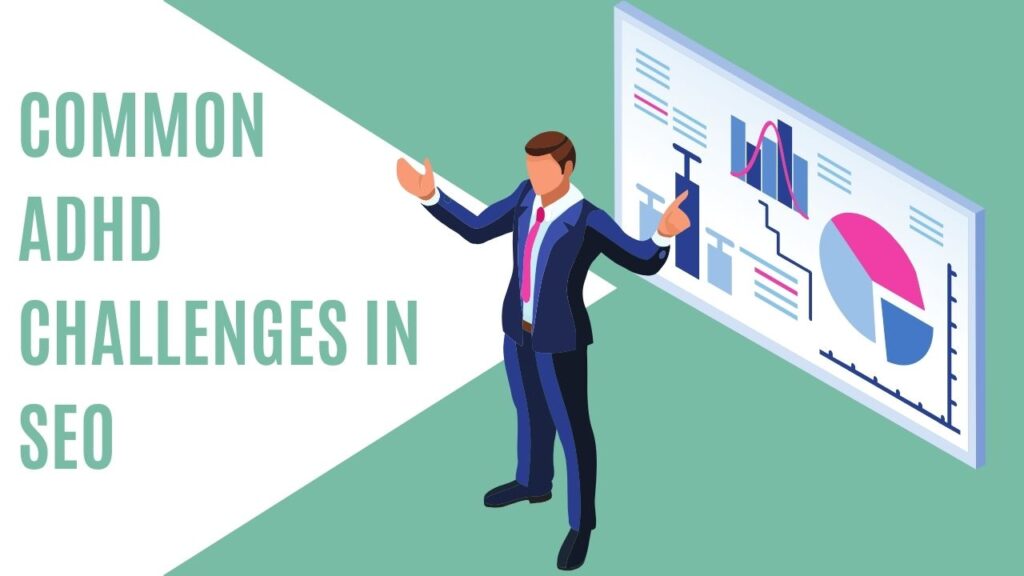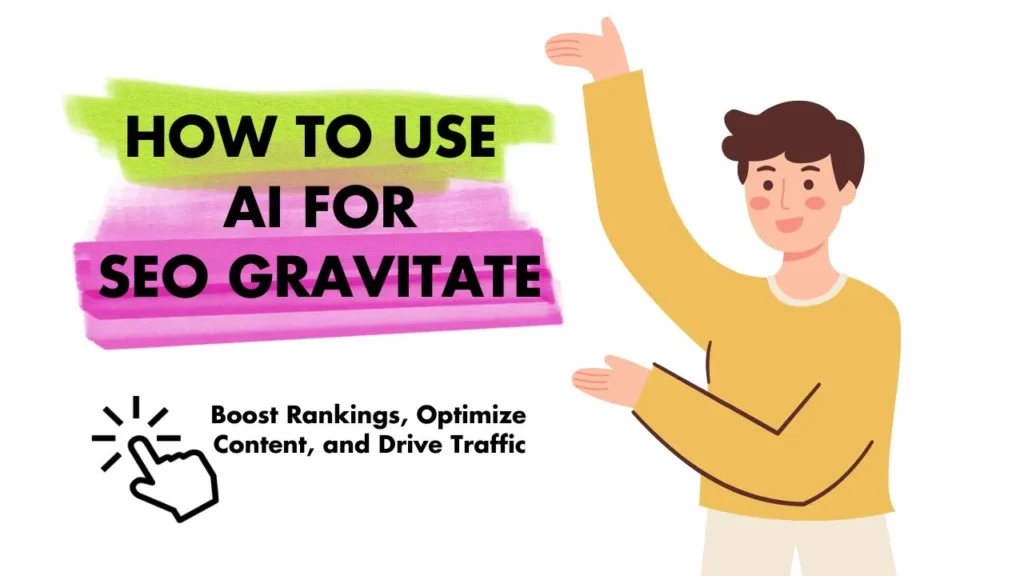The world of SEO (Search Engine Optimization) is fast-paced, complicated, and always changing. For people working in this sector, it means relentless content updating with performance tracking amidst strict deadlines and targeted results. Meeting these demands can feel more challenging if you have Attention Deficit Hyperactivity Disorder (ADHD). With ADHD focusing, organizing, and finishing tasks are difficult, but that does not mean succeeding at SEO is impossible.
This blog will look into ADHD on SEO professionals and their common challenges along with presenting some practical ways to help excel in the SEO field.
What is ADHD in SEO?
ADHD affects a person’s attention regulation, control of impulses and of organization systematically. In SEO, this disorder manifests itself through:
- Inattention: Struggling to focus on a single task for an extended period.
- Impulsivity: Making quick decisions without considering all the details.
- Hyperactivity: A constant need to move or shift attention between tasks.
SEO is a process that needs continuous focus, careful planning, and attention to detail. This is especially hard for someone with ADHD. Keyword research for USA markets, backlink creation for USA businesses, analyzing data sets, content creation – all these tasks in SEO have a rhythm demanding sharp attention and organization one might find extremely difficult if diagnosed with ADHD. On the flip side of the coin though, ADHD comes with positives like having high levels of energy along with creativity and the ability to think differently.
ADHD can be challenging but brings with it some incredible attributes that could be put to great use in the SEO domain. These unique characteristics combined with a methodical strategy will help one smoothly manage ADHD challenges on their way towards sustained success.

Common ADHD Challenges in SEO
1. Difficulty Staying Focused on Long-Term Projects
SEO includes things like making content, tracking keywords and ranking, as well as technical tweaks to websites. All of these need focus sustained over time which can be a difficulty for those with ADHD. When SEO tasks seem overwhelming or boring, it’s easy to lose focus and not finish them. There is no instant reward in long-term strategies which makes staying engaged difficult. This contributes to a vicious cycle of procrastination and unfinished work harming productivity and the overall effectiveness of SEO strategies.
2. Struggling with Time Management
As an SEO specialist, one needs to handle several tasks simultaneously in content writing, link-building, keyword research and reporting. For people with ADHD, estimation of task duration provide unique challenges and oftentimes causes missed deadlines. With ADHD’s many facets to juggle, it is not outside the realm of possibility for a professional to either procrastinate until the last moment or mismanage order of importance for the tasks that must be done first . In relation to SEO productivity and overall brand success, insufficient time allocation affects the professionalism and quality noticeably.
3. Information Overload
There’s always something new happening in the SEO world. Whether it is an updated SEO algorithm, new SEO tools being released or even changing best practices. Staying alert with everything on your plate can feel impossible, especially for someone with ADHD. Amid the chaos, one feels overwhelmed, which greatly increases difficulty when it comes to keeping track of crucial updates. Too much information also leads to guarding ideas which makes you fail to make decisions or take action due to stress and confusion.
It’s crucial to note that to avoid wasting mental energy, one must focus on sorting information properly as well as processing it effectively and efficiently.
4. Multitasking and Task Switching
In the SEO industry, it is common for professionals to switch between content creation, doing an outreach campaign, and performing a technical audit. These are all different tasks that require multitasking. For someone with ADHD, having to constantly shift focus and reorganize priorities around different tasks can be mentally draining. This can lead to issues like a lack of productivity or greater amounts of time wasted on completing each individual task.
The absence of concentration on one individual topic at any given point in time often results in being less attentive or careless and deciding to skip sections across all relevant work which ultimately hinges the overall work quality of SEO culminating lots of aggravation.
5. Lack of Organization
To track keywords, maintain engagement calendars, and manage content outreach, SEO professionals need to have strong organizational skills. ADHD individuals tend to struggle with organization the most out of everything. A lack of organization can lead someone to blow past deadlines, misplace files, forget tasks, or a mixture all three.
Many lack systems to get work done efficiently which does not help when dealing with an inbox flooded with work alongside overwhelming feelings which only drags productivity lower. To make sure everything is covered professionally and nothing is missed during the process requires organizing strategies that improve workflows even if they are simple.

Strategies for Succeeding in SEO with ADHD
While ADHD presents certain obstacles, it also brings unique strengths that can be leveraged for success in SEO. Here are several strategies to help you overcome ADHD challenges and excel in SEO:
1. Use ADHD-Friendly Time Management Techniques in USA
The Pomodoro Technique – The Pomodoro Technique involves working for 25 minutes at a time (called a Pomodoro) then taking a 5-minute break. Once you have completed four Pomodoros, take a 15-30 minute break. The idea is to train your brain to focus during short bits of work while taking regular breaks to prevent burnout.
Blocking of Time Set up a structured workday by dedicating certain time chunks for every job. Assign two hours for keyword research, one hour for content optimization, and half an hour for checking data, for instance. Setting precise limits for every assignment helps to minimize distractions and keep you concentrating on one endeavor at a time.
Set Timer Reminders – Use alarms or timers (digital or on your phone) to remind yourself of deadlines or when it’s time to switch tasks. This technique ensures you stay on track and helps you avoid hyper-focusing on one task for too long’s to set up pre pop email lead capture Imp
2. Organize Your Workflow with Visual Tools
Project Management Tools: Handle assignments, follow deadlines, and arrange projects using tools like Trello, Notion, or Asana. Especially useful for those with ADHD, visual boards and checklists provide a clear summary of what has to be done and let you divide activities into more manageable, smaller steps.
Use tags and color coding – When arranging duties in project management software or spreadsheets, it is helpful to prioritize them using color coding. For instance, red can mean urgent tasks, yellow median, and green for low-priority tasks. This method allows distinguishing between different levels of priorities which helps manage many projects at the same time without getting lost.
Document Templates – Create templates for recurring tasks (e.g., content briefs, link-building outreach emails, technical SEO audits). Templates reduce decision fatigue and provide a consistent framework that helps keep your work organized and on track.
3. Minimize Distractions and Create a Focused Environment
Use Website Blockers – To stay focused and prevent distractions, use tools like Cold Turkey, Focus@Will, or Freedom to block distracting websites (e.g., social media, and news sites) during your work hours.
Designate a Workspace – Create a dedicated, clutter-free workspace where you can focus. Minimize distractions by limiting noise and visual clutter, or use noise-canceling headphones to create an environment that supports concentration.
4. Break Large Tasks into Smaller Steps
SEO projects can often feel overwhelming, especially when you’re juggling multiple aspects like content creation, keyword optimization, and technical audits. To reduce feelings of being overwhelmed, break each project into smaller, actionable steps. For example, when working on a keyword strategy, break it down into stages like keyword research, competitive analysis, and search intent categorization.
Daily or Weekly Goals – Set achievable daily or weekly goals, rather than looking at the entire project as one massive task. Small wins can build momentum and help you stay motivated.
5. Leverage Your Creativity and Hyperfocus
One of the advantages of ADHD is the capacity to achieve hyperfocus, a state of extreme concentration that lets you go into a work. Embrace it when it occurs! Take your advantage using hyperfocus while working on projects needing creativity, including developing link-building techniques, inventing original SEO campaigns, or brainstorming content ideas.
Creative Problem-Solving – ADHD often fosters creative thinking and out-of-the-box problem-solving. Apply these strengths to your SEO work by exploring unconventional approaches to ranking, engaging users, or creating content that stands out.
6. Delegate and Outsource When Necessary
Working with a team, or using external resources like virtual assistants, can help ensure that every part of the SEO strategy is handled without overwhelming yourself.
Recognize tasks that may be particularly challenging for you and consider outsourcing them. Whether it’s content writing, technical SEO, or reporting, delegating can reduce your workload and allow you to focus on tasks where you excel.

Conclusion: ADHD and SEO—Turning Challenges into Opportunities
While ADHD presents unique challenges in SEO, it also offers strengths like creativity, adaptability, and the ability to hyperfocus. With the right strategies in place, individuals with ADHD can manage their symptoms and turn potential obstacles into opportunities for success. By using time management techniques, creating organized workflows, minimizing distractions, and leveraging personal strengths, SEO professionals with ADHD can thrive in a competitive industry.
If you struggle with ADHD in SEO, remember that you are not alone. With persistence, effective tools, and a positive mindset, you can overcome the challenges of ADHD and achieve lasting success in the world of SEO.

In the last five years, Dheeraj Mohan Rawat has mastered digital marketing and SEO, helping businesses harness online growth through tailored advice. He is an expert in traffic generation and ranking improvements, achieving substantial business outcomes. Results obtained over several years prove that every client receives ROI through Dheeraj Mohan Rawat’s strategies. Follow for more tips to grow your business digitally and ensure sustainable success.


